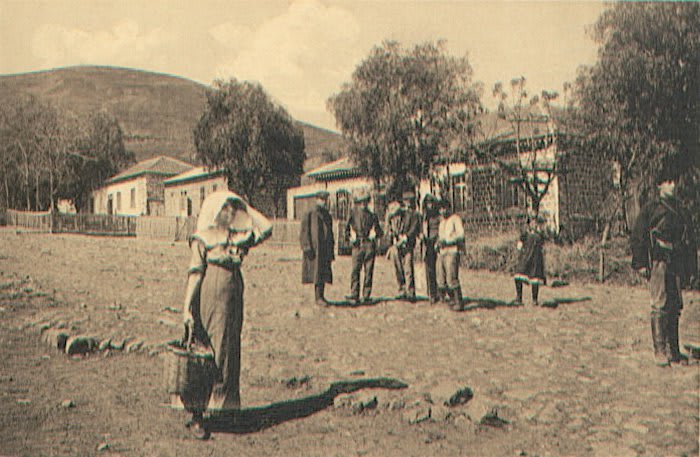Land of My Birth – The people of the First Aliyah were religious, and they did not abandon the Torah even after arriving in Eretz Yisrael. The pioneers of the Second Aliyah, on the other hand, were rebels who stayed away from the traditions which they had been taught in the Diaspora. But some of them were not able to disassociate themselves completely from the holiness and the childhood education which they had absorbed in their youth. There were times when they yearned for the warm Jewish atmosphere in which they had grown up.
One example of this was the case of Shlomo Tzemach, who grew up in Plonsk, in Poland, and studied in “cheider” and in yeshivot. He arrived in the land in 1904, and for five years he worked as an agricultural laborer in the settlements in Yehuda and the Gallil. In beautiful language, he describes how while he worked in the vineyards he felt a strong urge to look once again at the tractate which he had left behind in the foreign lands:
“As if from the deepest waters, the large tractate of Eruvin printed in Vilna rose up before me, with its large letters and with its drawings of different types of courtyards and entrance halls… I feel that the scent of the flowers in my nose is reminiscent of the sweet odor which emanated from the pages of the Talmud… And while I bent over my vine, choosing which branches should be removed and pruned, I was consumed by yearning for the abandoned and forgotten Gemorah, which was lying unredeemed… I remembered how I had come to Rabbi Tuvia, my teacher and mentor, to tell him that I had decided to study the difficult tractate of Eiruvin on my own…”
Shlomo the laborer decided that he would spend the evening after he finished work studying Eiruvin. But he immediately encountered a problem. Where could he find a Vilna edition of the Talmud, among the busy pioneers, who were so deeply involved in their labors? Then he had an idea: in the settlement there was a shochet – a ritual slaughterer – who also served as a teacher, known to everybody as the “preacher.” Shlomo was sure that he could supply the answer to Shlomo’s need.
When he came to the shochet, who was dressed in the tradition garb of a Jerusalem Chassid, Shlomo was amazed to discover that he did not have a copy of the Talmud either. But he agreed to look for a copy of the tractate of Eiruvin. So the ultra-religious shochet and the free-thinking pioneer went out together in the evening, startling the passersby at the sight of the unusual couple. In the end, Shlomo Tzemach was able to find what he wanted. Here is how he describes the event:
“This was a large Gemorah, bound in leather, and the back was not attached very well… When I got to my room, I impatiently lit the lamp and opened to page 55, to chapter “Keitzad Me’avrin,” the very place where I had stopped studying in the yeshiva… I sat near the cabinet and swayed back and forth in front of the tree that I could see in the window, and then I began in a quiet voice: ‘Rab Huna said, those who dwell in huts measure only from the entrance of their homes’… At first I felt a bit of shame, like a child who had taken the wrong path and then returned to his father’s home, but my old habits took over. I found myself sinking deeper and deeper into the passage … My singing voice gained in strength, and it was raised and lowered in line with the contents of the page… I asked the questions and read the answers… My robust voice cut through my room and could definitely be heard beyond the tangled branches of the pepper tree and throughout the rest of the settlement…”
Shlomo Tzemach was a pioneer who had been raised in an atmosphere of Torah, and thus when he moved away from it he did not abandon the Torah completely but continued his fondness and missed studying it. The situation of the children and grandchildren of these pioneers was more serious, since they grew up without roots of Torah and were therefore disassociated from the traditions. Perhaps we can see some consolation in the fact that today so many of the great-grandchildren of these pioneers are finding their way back to the traditions…
Source: Shlomo Tzemach, “The First Year”. Reprinted with permission from Zomet Institute (www.zomet.org.il). Translated from the Hebrew by Moshe Goldberg. To subscribe to receive the complete version of Shabbat B’Shabbato please write to dan@zomet.org.
The words of this author reflect his/her own opinions and do not necessarily represent the official position of the Orthodox Union.
